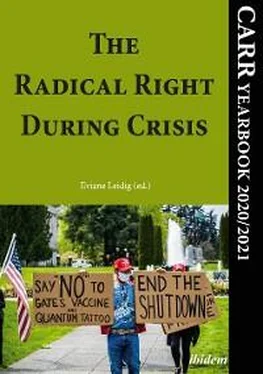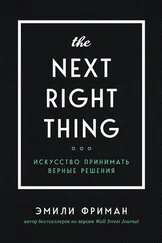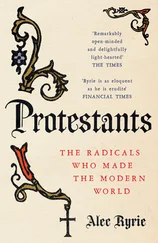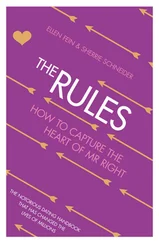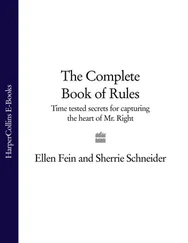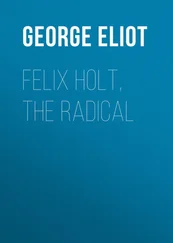This process would continue to be quite routine, taking place within the framework of existing domestic political realities, if there had not been for the discussion on social networks about the need to fix in the text of the constitution the “state-forming role” of the Russian national majority. This discussion quickly went beyond the internet.
A debate About Russian ethno-nationalism
A number of authors of the very opposite political orientation took part in it. ‘With each passing day, discussions about the special status of (ethnic) Russians in the constitution, the state-forming role of one people are gaining momentum. At first, this was perceived as the destiny of marginals, then it went to the first buttons of TV channels and to the Duma tribune’, writes on his Facebook page a well-known Russian political scientist, associate professor of foreign regional studies and foreign policy at Russian Humanitarian University, Sergey Markedonov. 3
There are incomparably more nationalists than was thought. The Kremlin’s harsh repressions against right-wing radicals in the recent years destroyed their political and organizational structure, but did not destroy nationalist ideology, whose popularity among the intellectuals was above expectations. ‘We are dealing with a strange situation’, says one of the supporters of the “Russian amendments”, Doctor of History Artem Ermakov, 4‘the vast majority of the population of our country continues to identify themselves as Russians, but this is not enshrined in any legal document. Except, probably, all-Russian census, which regularly confirms this result. The majority of the population declares that it is Russian, but absolutely nothing follows from this. Even our country is called “Russia” only in brackets, because “Russian Federation”—then its more formal name “Russia”—it’s like a tribute to some traditions’.
He is echoed by the well-known pro-communist politician of the late Soviet Union, member of the Supreme Council of the time of M. Gorbachev, and now the opposition public figure Viktor Alksnis: ‘For the last hundred years the Russian people were remembered at the official level only in the year of trials’, he writes. ‘Yes, there was a famous toast of Stalin for the Russian people. Yes, films were made, books were published, songs were written in which Russian history and Russian people were present, their exploits were sung. But at the official level, the Russian people were absent, they were not there’. Alksnis, an ethnic Latvian living in Moscow, believes that ‘Russia is primarily RUSSIAN RUSSIA and Russia is the RUSSIAN STATE’. He indignantly condemned well-known people in the country: Russians of Armenian descent such as film director Karen Shakhnazarov and political scientist Gevorg Mirzoyan, who spoke out in a popular TV talk show against ethno-amendments. They called them ‘outright discrimination and dividing the peoples of Russia into first grade and second’. 5
Oddly enough, he is echoed by a well-known Russian liberal, minister of economics in the Yeltsin government, Andrei Nechaev, 6co-chair of the opposite “Civil Initiative” Party. ‘Accidentally I turned on (TV show) Russia 1’, he writes on Facebook, ‘and there are Shakhnazarov, Kurginyan, Zhirinovsky and Elena Yampolskaya led by Solovyov [all ethnic Armenians or Jews—author’s note] teaching us Russian patriotism’. When asked by the author what he didn’t like the most—the ethnic origin of the speakers or the fact that they taught the audience patriotism, he replied, ‘both’.
Ordinary people are not far behind them. Denis Titov, 7referring to the author of this article, writes: ‘All post-Soviet peoples received their nation-states, in many national republics of the Russian Federation the titular peoples are spelled out in local constitutions, even when they are constituting a minority. Only Russians should not be given anything. Russians should not have their own State, they will tolerate. Oh well’.
However, the idea of creating a Russian autonomous republic in the central part of the country, where most ethnic Russians live, is unpopular among supporters of ethno-amendments. Their opinion was expressed by someone Ilya Maslyukov, 8who lives in Estonia, but who positions himself as an ethnic Russian. ‘Nobody is going to create a separate Russian republic’, he writes. ‘It (Russia) was already created by many of land collectors, from Ermak and Dezhnev to Khabarov and Krasheninnikov, and many other people. So, it turns out that all equal peoples live inside of the one big Russian republic. Many of them (equal peoples) asked themselves to protect their interests. And who didn’t ask ….. Mother History has already forgotten about them. So, everyone is equal. Therefore, Russians should be mentioned (in the text of constitution)’. True, Ilya does not know the answer to the question of whether Tatars, Chechens, and, for example, Circassians, who were conquered by Russian tsars in different periods of history, would agree with his idea.
But in any case, we see that this category of people understands that Russia is not the Soviet Union, this is the Russian republic, but to enclose the territory within itself is the height of the absurd. Therefore, the requirement to single out an ethnic majority in the constitution is the desire to simply affirm its leading role among other peoples of the country. The idea is not new: ‘we are all Russians (French, Germans, Spaniards, etc.), just of different ethnic, religious and cultural backgrounds’. It lies at the heart of the European constitutional tradition, which is undergoing serious trials today.
In Russia, the popularity of this idea indicates the disappointment of a significant part of the population in the idea of the multi-ethnic “Russian Nation”, which was actively promoted in the corridors of the Kremlin by Russian Academy of Science’s Valery Tishkov. 9The idea is absolutely logical, it is based on the factor of multi-ethnicity of the Russian population and the principle of soil, a common territory that brings together hundreds of peoples and ethnic groups living in Russia. But the authors did not take into account that, in addition to the common territory and historical destinies of the modern nation, common values are necessary today, on the basis of which unification occurs. In multi-ethnic countries, these can be supra-ethnic values only. 10
But ideologists of the modern Russian nation-building theory deny this, and with them, the power denies this too. Consequently, there remains one group of values that can unite, if not the whole nation, then at least part of it, as is happening in most European countries. It is about the language, culture, and traditions of the ethnic majority. These are simple values, attractive not only to representatives of this ethnic majority but also to a certain part of minorities. The European model of the nation is built on this basis, and this model is laid in the foundation of the European constitutional tradition.
The European point of view on the formation of a nation in Russia was expressed in social networks by the well-known defender of the rights of the Russian-speaking population in Ukraine, Stanislav Byshok, who believes that the construction of the Russian nation is possible only on the basis of Russian culture. 11At the same time, Byshok understands the limitations of his theory, since at least 20% of the population of Russia does not consider this value as unifying one within the framework of a big country. He argues that his ‘thought is not that Russian culture has such power that it can hold everyone and everything. The question is that there is no other holding factor. Within the framework of tough totalitarianism, it could be combined by force and ideology’. ‘When the power became less, and ideology showed its worthlessness, the design fell apart. Ideology ended, and Russian culture remained. Together with the Russians,” he writes.
Читать дальше
